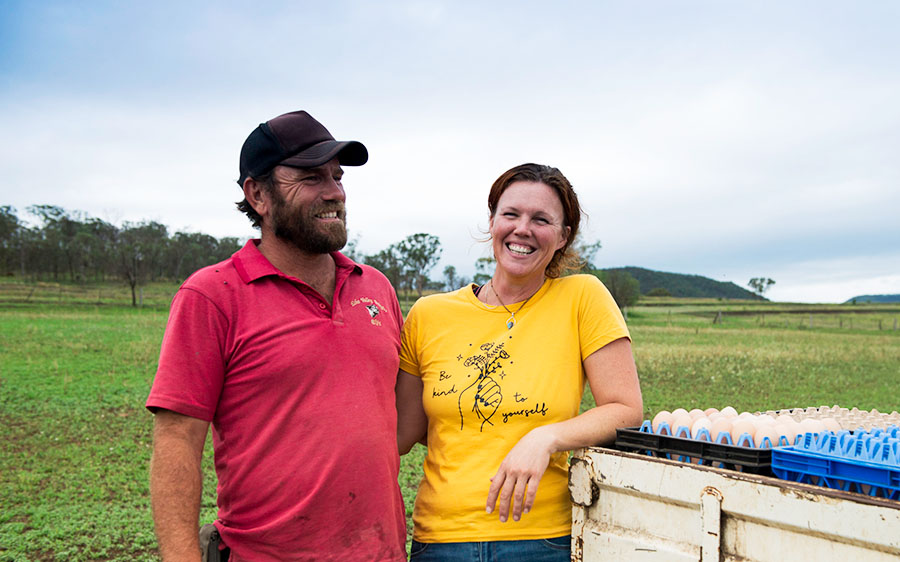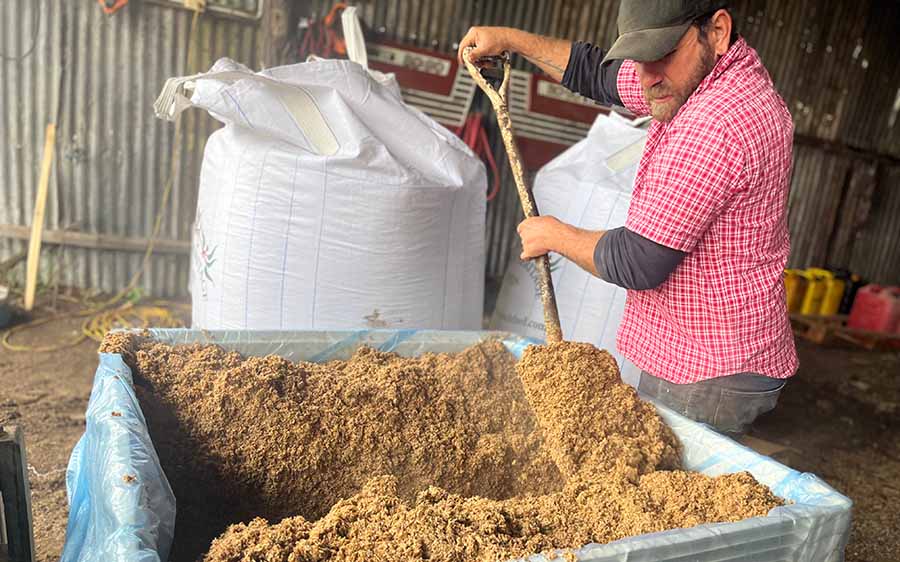The globalisation of agriculture and food production means that fresh produce today travels around the world, often journeying further than many humans will in a lifetime. Thanks to this advancement, we can enjoy a tropical fruit salad even during the coldest days of winter. But our comfort comes at the cost of nutrient-depleted soils and wasted produce.
In the natural environment, vegetation decays where it grows, breaking down into the blocks of nutrients that built it. Monoculture farming and our ability to transport food across oceans have disrupted this cycle. In much of the world today, we have created a linear system where produce is transported from farmland to coastline, consumed, and then released as nutrients into sewerage systems. Nutrients no longer return to the original soils they came from, resulting in deteriorated agricultural land and a reliance on inputs and fertilisers to maintain productivity.
Nutrient-depleted soils lower the condition of livestock and crop vitality, increase the risk of erosion and, ultimately, degrade farm health and efficiency. Often, this is the result of monoculture farming practices that strip the soil of nutrients and break down its structural integrity. Regenerative farming practices - such as using natural fertilisers and composts - aim to restore soil fertility and improve farm productivity. By recycling nutrients on-farm, farmers create a closed-loop system that ensures essential elements and minerals return to the land rather than being lost in waste streams.
 Randal and Juanita Breen at Echo Valley Farms
Randal and Juanita Breen at Echo Valley Farms
Randal and Juanita Breen at Echo Valley Farms have taken this concept one step further, introducing food waste collected from several food producers in Brisbane to their soil. Not only are they ensuring essential nutrients return to their soil, but they're also reducing the amount of produce piling up in landfills.
The Breens' decision to redirect food waste from landfills to their farm has provided more benefits than they could have ever imagined. In 2014, they bought their farm, nestled among the fertile slopes of Goomburra, South East Queensland, with a mission to restore the land. Ten years on, their enterprise now consists of cattle, sheep, poultry, pigs and seasonal small cropping. But it wasn't always easy going. After 120 years of heavy tillage and other disruptive farming practices, the land was devoid of nutrients and in need of the passionate and holistically focused duo to set it back on track. When the devastating drought that swept across the nation in 2019 left pastures crackling underfoot, the Breens were forced to explore outside-the-box options to maintain the condition of their breeder cattle.
After forming partnerships with craft brewers and food manufacturers in Brisbane, the Breens began a weekly pick-up system, redirecting food waste back to their farm.
After forming partnerships with craft brewers and food manufacturers in Brisbane, the Breens began a weekly pick-up system, redirecting food waste to their multi-species integrated farm. Collecting food waste meant they could feed their livestock until the rain once again turned their pastures green. But even after it poured, the Breens were not so eager to lose their new feed source.



